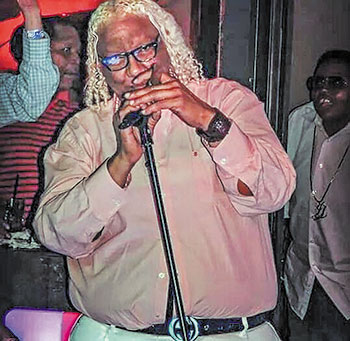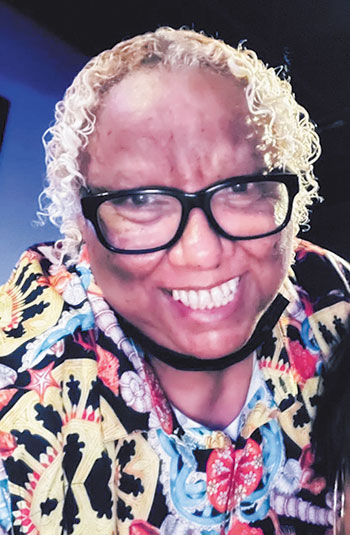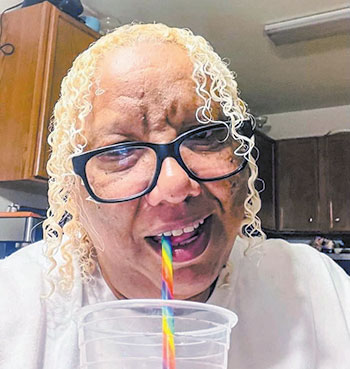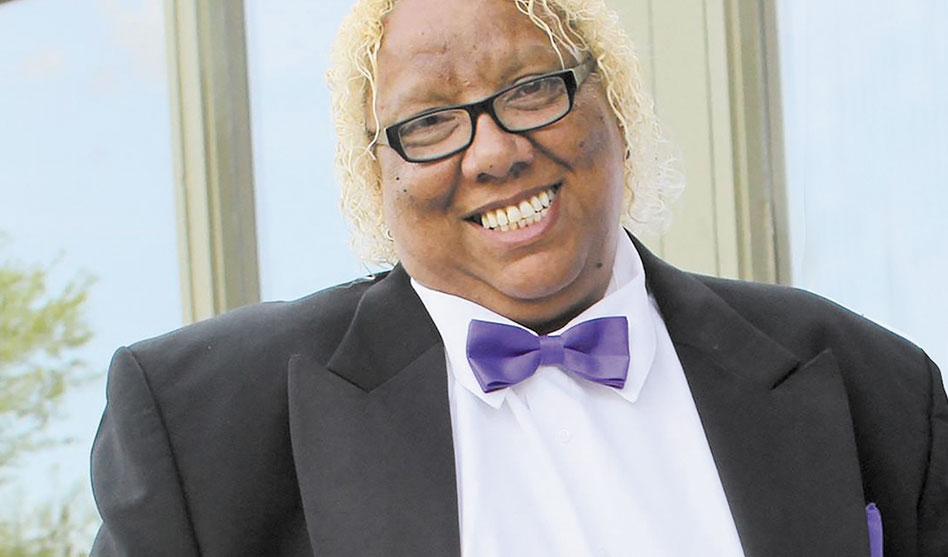Celebrating Betty Neal on her birthday and her decades of work for the Black, LGBTQ communities
MELISSA WHITLER | Contributing Writer
editor@dallasvoice.com
Originally from Fayetteville, Ark., Betty Neal moved to Dallas back in 1979 after two of her friends moved to the city. Having just graduated beauty school, she got a job at Sassy’s Bar, DJing and working the door.
And she never looked back.
 Neal racked up a lot of firsts during her high school years: the first Black member of the prestigious Elite 26 Club (13 sophomores and 13 seniors chosen each year by teachers to plan proms and events); first president of the group PBS Promotion of Black Students; the first Arkansas All-Around State Champion in Track and Field, breaking records in shot put and discus.
Neal racked up a lot of firsts during her high school years: the first Black member of the prestigious Elite 26 Club (13 sophomores and 13 seniors chosen each year by teachers to plan proms and events); first president of the group PBS Promotion of Black Students; the first Arkansas All-Around State Champion in Track and Field, breaking records in shot put and discus.
And with all those firsts, leading was something that came naturally to Neal.
“I knew in small groups I could influence people, but I never looked at the big picture,” she reflected, noting that it wasn’t until the 1980s, when her
Black friends told her they weren’t able to get into certain clubs in the Gayborhood, that her activism started to bloom.
“It presented me with a challenge,” Neal said, “and I started to feel like I wasn’t doing enough for my community. I started to see the big picture.”
Her work grew from there. She began to educate herself and the Black LGBTQ community as she continued to work in the nightlife business. Never willing to take no for an answer, Neal looked for places she could start opening doors for others.
…………………………..
The Black Party: Betty’s Birthday
Celebrate Betty Neal at The Black Party: Betty’s Birthday on Saturday, March 2 at Sue Ellen’s, 3014 Throckmorton St.
There will be a show featuring emcee Otis Mack and performances by Raquell Lord, Ruby Scott, Vay Mack Lemore and more, including Dallas’ only Black aerialist.
Doors open at 8 p.m.; show starts at 11 p.m.
For her birthday this year, Neal is asking for donations to Abounding Prosperty Inc., saying that the agency’s “mission means a lot to me, and I hope you’ll consider contributing as a way to celebrate with me. Every little bit will help me reach my goal.”
…………………………..
She recalled how DJs weren’t allowed to play music by Black artists at the bars. One night, she took over DJing and was told not to play any hip-hop music. But when the owner stepped out, Neal put on Salt-N-Pepa, much to the delight of the dancing crowd.
 The owner returned and began to berate Neal, but the crowd was on her side. This was just the beginning of Neal breaking down barriers.
The owner returned and began to berate Neal, but the crowd was on her side. This was just the beginning of Neal breaking down barriers.
In the 1980s, the AIDS crisis was another focus of Neal’s activism. She realized that many members of the Black community didn’t have insurance and so were unable to get the services they needed. She worked with Dallas County to bring HIV testing to club parking lots, and to get payment for the people who got tested.
“I started to get political then,” Neal recalled. “Before that, I hadn’t realized I could influence the political system.”
Neal continued to learn from her friends on the city council and started asking politicians what they were going to do for the Black gay community.
This involvement led to Betty Neal being instrumental in the early days of Dallas Black Pride, as well as many organizations and events. She’s one of the longest-serving board members of Pride in Dallas and continues to work with Dallas Southern Pride, Dallas Pride, Black Tie Dinner and Black Lesbian Pride. It’s her way of continuing to give back to the community and work towards equality.
“We need to integrate minorities into a space where they feel comfortable, and being on these boards is the start of that,” Neal said. It’s how she’s been able to open up doors for Black people within the community.
What has kept Neal going all this time? The belief that change is possible.
“Experience has taught me to keep fighting for change and equality,” she said. “I know that greater days are ahead.”
She’s watched the Dallas Black LGBTQ community grow into what it is today: “Now we have Black clubs, Dallas Southern Pride, Black Lesbian Pride,” Neal said. “We’ve come a long way.”
That doesn’t mean it hasn’t been a struggle, Neal is the first to admit. But, she stressed, you can’t give up.
Neal continues to embody this ideology up to today. Not one to just sit and watch, she continues to go out into the community and do what she can to help, no matter how small.
“I believe in order to live a more prosperous life, you have to keep going out, have to be active,” Neal said. And she believes that interacting with others who might be different from ourselves is the key to changing perceptions.
Neal encourages everyone to start conversations with those sitting around them. “You can sit across someone totally different from you at the bar, and before the night’s over you have a new friend,” said Neal. “God guides you to share words in the most uncommon of places.”
She recalls one day, when she was working at Walmart, there was an older white man who needed an electric cart to do his shopping. He had on a red MAGA hat, and Neal thought to herself, “This is not going to end well.”
But she went to help him anyway.
 After she helped him, he thanked her and asked to shake her hand. He told Neal he had been having a bad day and was in a bad mood but really appreciated what she did to help.
After she helped him, he thanked her and asked to shake her hand. He told Neal he had been having a bad day and was in a bad mood but really appreciated what she did to help.
She could have easily walked away and left someone else to help him. But if she had chosen to do that, she would have missed out on a meaningful interaction. And every time that man came back to the store, he always made sure to say hello to Neal.
“If you allow yourself to be open, sometimes the small things will make people rethink their extreme ideas,” Neal said. “The fact that he was open to shaking a Black lesbian’s hand and thanked me — that’s how you achieve equality.”
Her advice to young activists is to steady the course and make sure to educate yourself. “You can’t fight for something you don’t understand,” Neal said. “If there’s something you’re not allowed to do, figure out why and fight it.”
She emphasizes the importance of working with others and always working to bring new people in. In order to ensure change continues moving forward, and not backward, we have to put in the work.
Betty Neal doesn’t plan on stopping her work any time soon. Currently, she’s very active in the fight for women’s rights and getting out the vote. It’s what she’s passionate about, she said, adding that it gives her something to live for.


Betty Neal is and has always been a major part of my life. She taught me never to fear anything or anyone when you are a loving good person. She was my first introduction as an Entertainer into the Black Community.
I was so Nervous…she said, “Just Be Yourself like Always & they’re gonna Love You”. So I did & they did and it was a Love Affair from then on. Congratulations Betty You Deserve nothing but the Best, because you have always been the BEST! Love Mark Alan Smith aka Nakoma Shaye